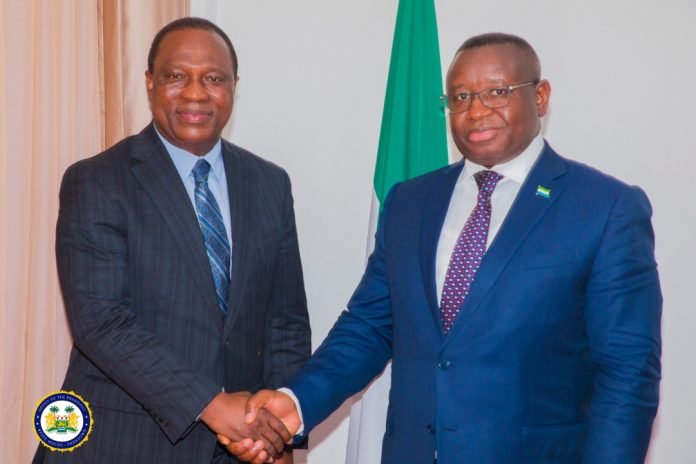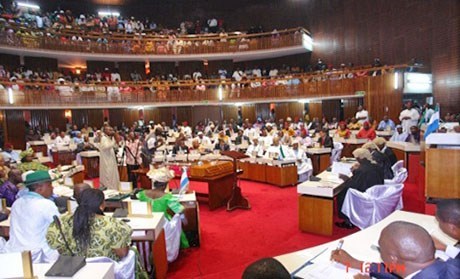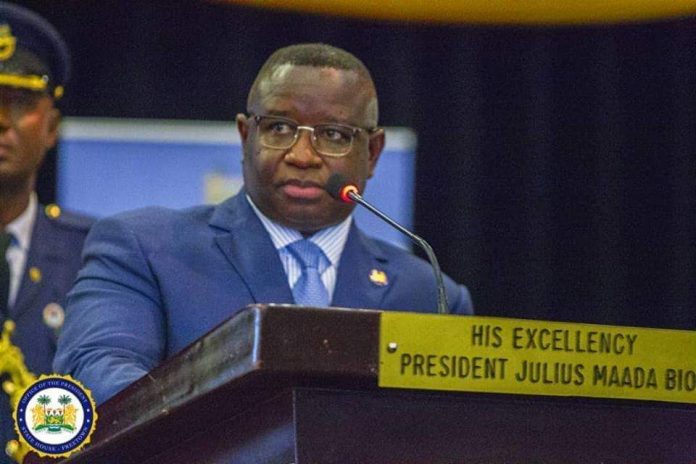One thing that is very certain is the fact that if pressures in the form of stiff conditions and policies are piled and placed on productive companies that are doing extremely well in this country, especially those that are locally owned, then there is the likelihood that they may either fold up or reorganize at the detriment of some workers who will definitely be shown the exit door or affect the country’s revenue base since payment of taxes will no longer be forthcoming.
At this material time when the country’s legal tender, the Leone, has really depreciated to the dollar many local companies are finding it extremely difficult to operate efficiently and effectively as well as compete with other foreign owned companies producing the same products and services these affected companies are producing.
It may not be said openly but it is implicit that the Sierra Leone Bottling Company Limited, which has been in operation for the past twenty years, recently decided to restructure to such an extent that most of its workers were sacked.
According to the management of the company changes were effected as part of a strategic program designed to ensure the long term sustainability of their business so that they can better serve the people of this country.
At the moment one of the most viable indigenously owned companies that has been doing extremely well in terms of timely service delivery of petroleum products and customer care, the National Petroleum Sierra Leone Limited (NP-SL) is going through trying times. NP SL Limited recorded a massive loss from January to May 2019 to the tune of over Le 96 billion (ninety six billion Leones).
A major factor said to be responsible for this scenario is the fact that there has been a huge difference between the actual price of PLATTS and the average purchase price of USD $ to the Leone when matched against that of the Petroleum Regulatory Agency Pricing Formula.
The NP-SL as a result is currently paying an average of Le9, 000 to $1 (USD) as compared to L8, 600 to $1 (USD) in the PRA Pricing Formula. Another challenge facing NP-SL Limited is volatility and unavailability of US Dollars to effect transactions.
It is so serious that NP-SL Limited currently owes its suppliers over $42M which NP-SL Limited is challenged to honour.
From a thorough research that was conducted over time it was understood that in the past when the industry was faced with some challenges and in order to avoid fuel crisis the Government always steps in to subsidise the prices of petroleum products to ensure that the pump prices are at affordable level to the general populace but for now that is not the case.
What again came out is that if the route is not desirable, the Government increases the pricing regimes to reflect the real market prices of petroleum products in the market, to ensure the industry does not collapse.
As it is right now, Oil Marketing companies are subsidising virtually all sectors in the industry to the detriment of its own survival.
“If the current fiscal regime is not reviewed many companies including NP will go down such a painful and dreadful route,” stated Steven Williams, a Development Consultant, adding that indeed, sound policies must be urgently rolled out to ensure stability.
It was also discovered that the nature of NP-SL’s business is such that NP-SL imports petroleum products in US Dollars, sells in Leones and has to then convert the Leones into US Dollars to continue the buying and selling processes all over again.
Williams maintained how it is regrettable that the company is finding it extremely difficult to purchase US Dollars in the market place currently. It is a fact that over the years, NP-SL received tacit support from the Central Bank even though the amounts normally received were inadequate.
It is recommendable for the Central Bank to develop a mechanism where foreign currency is provided for the oil marketing companies to enable them pay for badly-needed petroleum products.
Of course to promote transparency of goods that are brought into the country and required taxes that must be paid to Government the ASYCUDA digital software was introduced at the Port.
However what we learnt in our investigations was that the method of implementation of the ASYCUDA system has been negative on NP-SL’s speed to market initiatives; the reason why it is recommendable that the relevant authorities build solid capacity amongst their team to ensure seamless flow of products free of interruption and long delay.
The current pricing formula dictates that the pump price of petroleum products be adjusted upwards or downwards periodically as and when the combined effect of the changes in world market prices (quoted in PLATTS) and the exchange rate (measured by the average selling rates quoted by the Oil Marketing Company, commercial banks and Bank of Sierra Leone) cause a +/- 5% change in the Leone-based landed cost of the product (s).
It was noted that prices should be changed upwards or downwards in small increments that will not create panic in the market place. The way it is currently, allows for a big jump at any time which makes it difficult for Government to effect change at the right time.
It may interest readers to note that while a litre of fuel is sold at Le7,000.00 here, in Guinea it is sold at Le9,120.00, in Liberia it is Le9,321.00, Ivory Coast sells at Le9,244.20 and Ghana at Le 9,136.44.
To add salt to injury, NP-SL is further encumbered with other charges that are not provided for in the price build up formula, and these include: Toll Gate fees, ASYCUDA processing fees, Environmental Protection Agency fees, storage fees and other fees imposed by the Petroleum Regulatory Agency.
As it was stated inter alia, the government really need to relax some of its policies, conditions that are being implemented especially those affecting vibrant companies in the country as well as ensuring that economic measures are rolled out in order for the Leone to be weighty instead of continuous depreciation that we have been witnessing.
Failure to take drastic steps to protect locally owned companies will definitely lead to closure or restructuring with dire consequences that could take the form of labour downsizing, no more payment of taxes to government etc.











